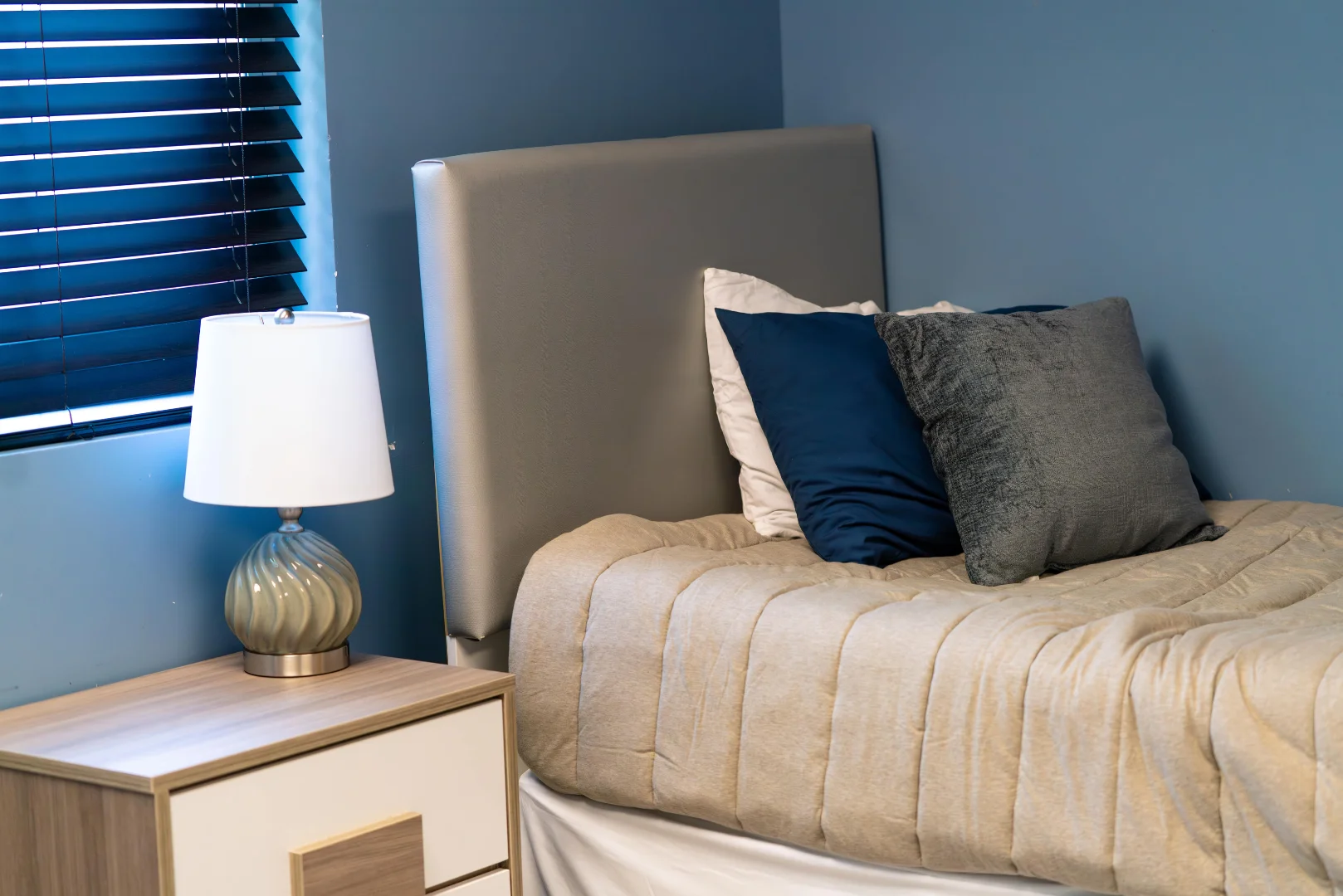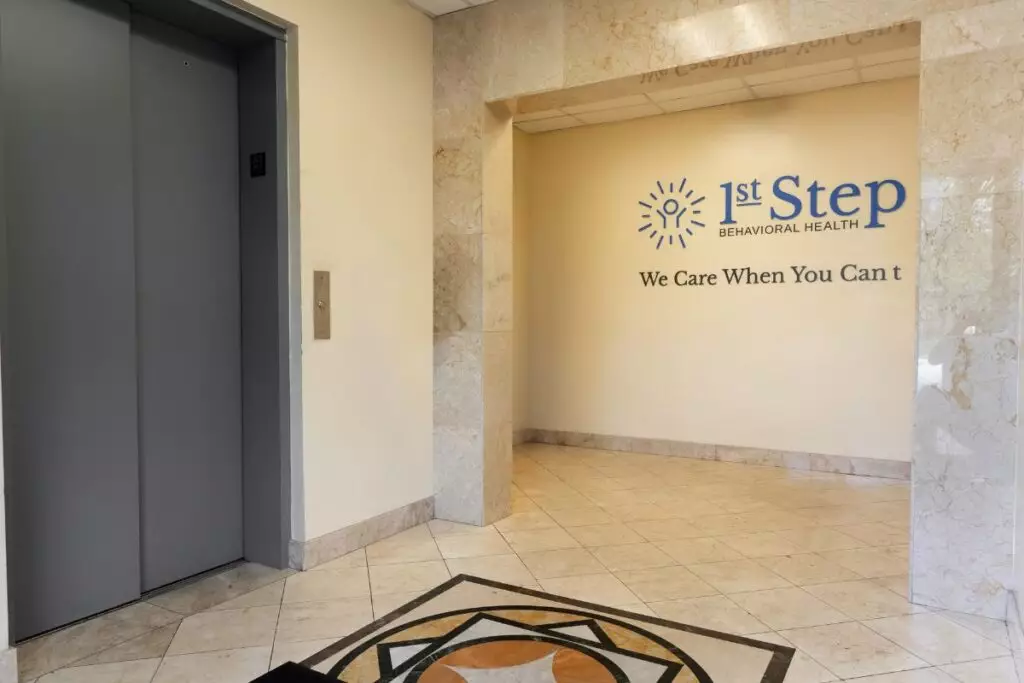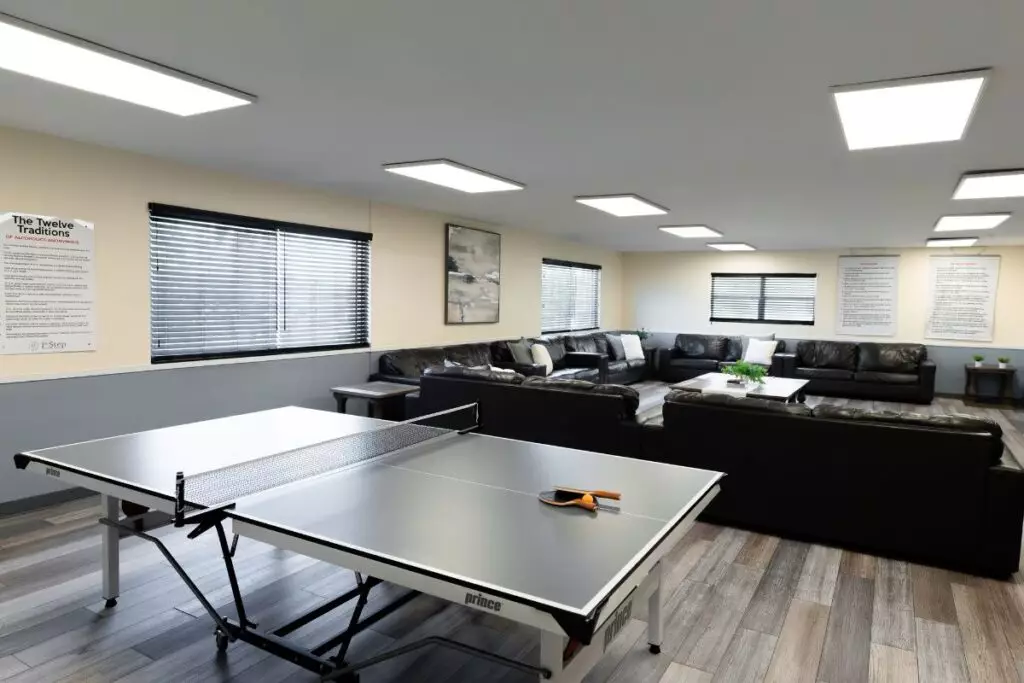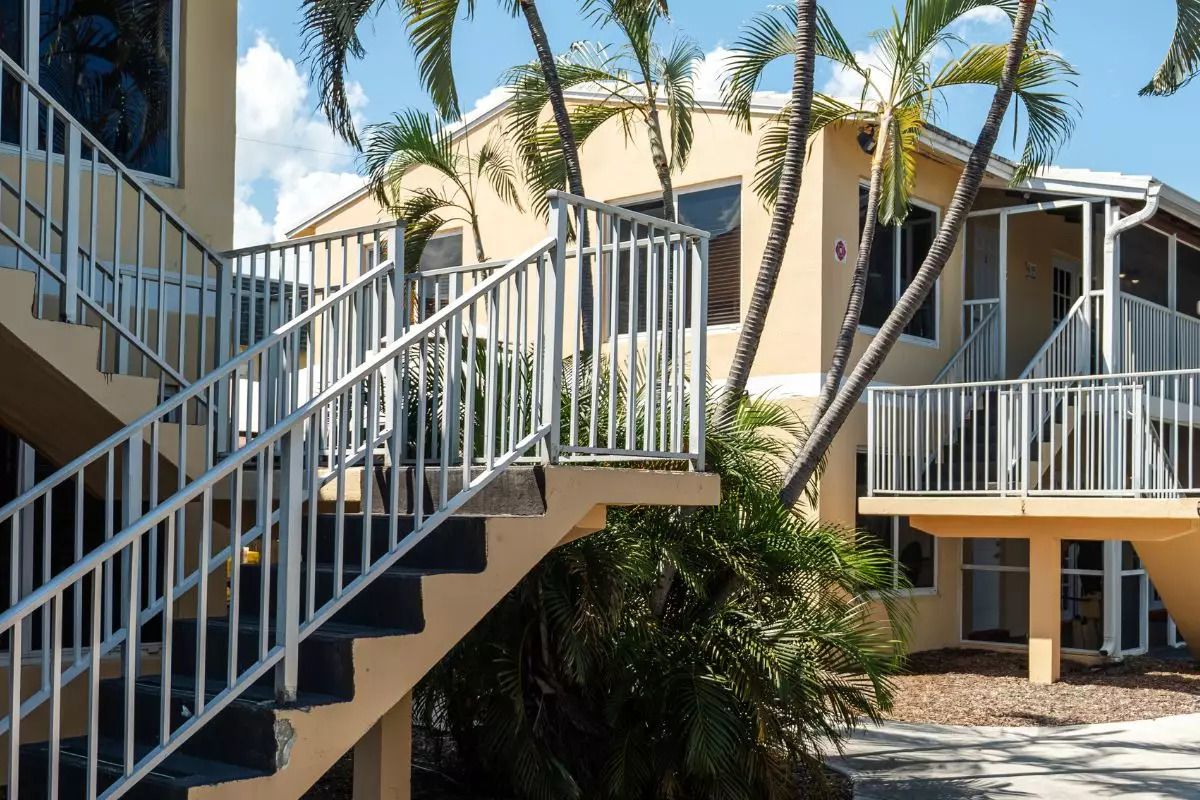Opiate Addiction Treatment
Opiate addiction is one of the most difficult addictions to overcome. Opiates come in different forms, and more and more people each year are developing addictions to these dangerous drugs. However, there is a light on the other side of the tunnel. Your road to treatment and recovery can begin today. Contact our admissions team at 1st Step today to take the first step in seeking help and finding treatment for your or a loved one’s opiate addiction.

Understanding Opiate Addiction
Opiates are a class of analgesic drugs that are used to treat pain. While they are highly effective when it comes to pain management, they are also highly addictive. An estimated 2.7 million Americans had an opioid use disorder in 2020. Opiate abuse has become such a devastating and widespread issue that the U.S. is thought to have an opioid crisis or epidemic.
Part of the reason behind the alarming rates of opiate abuse in the U.S. is because of how often American physicians prescribe opiates. Studies have found that the U.S. prescribes roughly 80% of all of the opiates in the entire world.
Many people can take opiate medications after surgery or injury and not develop a problem. However, genetic predisposition to addiction sometimes causes individuals to develop cravings right away. The most common way that people develop addictions is through a prescription for a long-term pain management program. Taking these medications on a daily basis causes people to develop a tolerance and dependency on these medications.
When individuals use opioids, whether prescribed for pain relief or obtained illicitly, the drugs bind to specific receptors in the brain and central nervous system, leading to pain relief and a sense of euphoria. This immediate reward reinforces drug-seeking behavior.
Over time, the brain adapts to the presence of opioids, leading to the development of tolerance. Tolerance means that individuals need higher doses to achieve the same effects they initially experienced with a lower dose. This escalation in dosage can easily spiral out of control.
Dependency also develops as the brain becomes reliant on opioids to function normally. When someone attempts to quit or reduce opioid use, withdrawal symptoms, such as cravings, anxiety, nausea, and muscle aches, can be severe, driving continued drug use to avoid these discomforts.
The cycle of tolerance, dependence, and withdrawal, combined with the powerful psychological allure of opioids, makes breaking free from addiction exceptionally challenging.
Some of the most commonly abused opiates include:
- Codeine
- Fentanyl
- Dilaudid
- Hydrocodone
- Demerol

What to Expect From Opiate Addiction Treatment in Florida
With the right treatment, anyone can recover from addiction. Treatment for opiate addiction may include:
- Medically-assisted detox
- Residential and hospital-based treatment
- Counseling and behavioral therapies
- Medications and Medication-Assisted Treatment (MAT)
At 1st Step Behavioral Health, all therapies and services are individually tailored to each client’s unique needs.
Medications Used to Treat Opiate Addiction
Medications play a significant role in helping individuals overcome opiate addiction by reducing cravings, withdrawal symptoms, and the risk of relapse. Medications that may be used to treat opiate addiction include:
- Methadone – Methadone is a long-acting opioid agonist that binds to the same receptors as other opioids, such as heroin or prescription painkillers. However, it acts more slowly and for a more extended period. It helps to reduce cravings and withdrawal symptoms, allowing individuals to stabilize their lives. Methadone is often administered through a specialized clinic and is tightly regulated due to its potential for misuse.
- Buprenorphine – Buprenorphine is a partial opioid agonist, which means it binds to opioid receptors but with less intensity than full agonists like heroin. It can reduce cravings and withdrawal symptoms while having a lower risk of overdose.
- Buprenorphine/naloxone (Suboxone) – Suboxone is a combination medication that contains buprenorphine and naloxone, an opioid antagonist. The buprenorphine component helps manage cravings and withdrawal, while naloxone is included to deter misuse (when injected, naloxone can trigger withdrawal symptoms).
- Vivitrol (naltrexone) – Vivitrol is a brand name for the extended-release injectable form of naltrexone. Naltrexone is an opioid antagonist, meaning it blocks the effects of opioids on the brain’s receptors. Unlike methadone or buprenorphine, naltrexone doesn’t provide any opioid-like effects or physical dependence. Administered monthly, Vivitrol provides long-lasting protection against opioid use.
Medications are most effective when used in a MAT approach which involves behavioral therapy and counseling.
Counseling for Opiate Addiction Treatment
Counseling offers a variety of great benefits when it comes to treating opiate abuse. Counseling for opiate abuse and addiction can help you:
- Change your attitudes and behaviors related to drug use
- Build healthy life skills
- Adhere to other forms of treatment, such as medicines
There are different types of counseling to treat opiate abuse and addiction, including:
- Individual therapy – Individual counseling focuses on goal-setting, talking about setbacks, and embracing progress. Many patients also discuss legal concerns and family problems.
- Cognitive-behavioral therapy (CBT) – CBT is a widely used behavioral therapy that helps you understand and stop negative patterns of behavior and thinking. Coping skills are taught, including how to manage stress and change the thoughts that cause you to want to abuse opiates.
- Contingency management (CM) – CM is centered around giving you incentives for positive behaviors such as staying off the opiates and actively working on an opiate treatment.
- Group therapy – Group counseling can help you be less isolated on your journey to recovery. In group settings, you get the opportunity to hear about the difficulties and successes of others who are going through similar challenges. This can help you to learn new strategies for dealing with the situations you encounter. You also get to witness other people’s recoveries, which can be inspiring.
- Family therapy – Family counseling includes partners or spouses and other family members who are close to you. It can help to repair and positively transform your family relationships.
At 1st Step, we recognize that everyone has unique needs when it comes to counseling and behavioral therapy. That’s why all of our therapies are customized to meet your individual needs.

Inpatient Opiate Rehab in Florida
The highest level of care we offer is inpatient rehab. Inpatient programs, also known as residential inpatient treatment programs, feature a safe and comfortable living environment for recovering addicts. This structured program is ideal for those who struggle with severe opiate addiction and/or co-occurring mental health conditions. They’re also an excellent choice for those who are prone to relapses.
Inpatient programs here at 1st Step can take anywhere from 28 to 90 days to complete. Throughout treatment, clients have the opportunity to enjoy a wide variety of addiction therapies such as behavioral therapy, occupational therapy, physical therapy, counseling, and more. The main benefit of a residential inpatient program is that patients have 24/7 support. They can reach out to our treatment specialists whenever they need assistance.
Partial Hospitalization Program (PHP) For Opiate Addiction
Partial Hospitalization Programs (PHPs) are one step down from residential inpatient treatment. PHPs provide the same quality of treatment, but patients are not required to reside at the rehab facility. They can leave whenever they’re finished with their treatment for the day.
When it comes to PHPs, most patients can participate in 4 to 8 hours of treatment every day. These programs can target moderate to severe addiction. Patients enjoy almost all the same treatments as inpatient programs but with a little bit more flexibility.
PHPs also offer several benefits. Patients can partake in opiate treatment while still being able to stay at home. This can be really beneficial to those who still take on other obligations and responsibilities. These programs also tend to be more cost-effective than residential treatment.


Outpatient Opiate Rehab in Florida
Outpatient opiate rehab programs are generally used for those who have a mild to moderate addiction. Patients in outpatient rehab usually have already completed an inpatient program or PHP before transitioning to this level of care. Outpatient programs tend to be a part of an aftercare program, ensuring all needs are met. They help recovering addicts stay sober on a smaller, less involved scale.
Outpatient programs come in two different types. There are standard programs, which require a minimal time commitment, and there are also intensive outpatient programs (IOPs) which are a bit more time-consuming but more flexible than PHP.
Since outpatient opiate treatment programs require very little commitment, patients can adhere to their other obligations such as attending school or caring for a child. Addiction treatment will not interfere with one’s daily life.
Start Opiate Addiction Treatment in Pompano Beach, FL Today
At 1st Step, our opiate detox and treatment program is tailored to meet the unique needs of every patient and represents the initial phase of your journey toward recovery. During the initial detoxification process, we are committed to guiding you through the challenges of withdrawal while prioritizing your safety. Following successful detox, a seamless transition awaits you at our drug treatment center, where you will gain the tools and knowledge necessary to embark on a sober and healthier life.
Don’t wait another minute to begin changing your life. Call or text us today at (855) 425-4846 or contact us to begin overcoming your opiate addiction.
